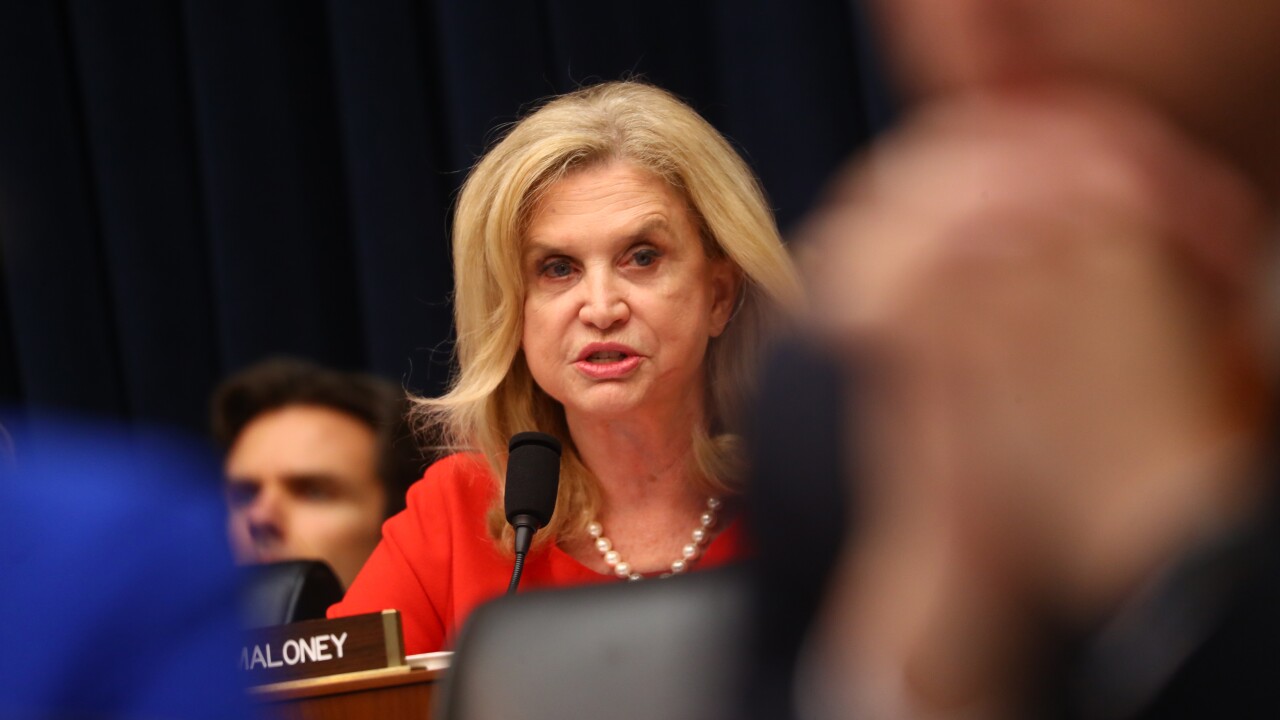-
Overdraft fees are criticized as unfair penalties for lower-income customers, but they are often better for consumers than getting purchases rejected.
November 8 Cornerstone Advisors
Cornerstone Advisors -
As PNC's head of retail banking, Karen Larrimer oversaw the development of a new service that alerts customers when account balances are in danger of falling below zero.
October 6 -
Consumer advocates have long wanted to restrict banks' ability to collect overdraft fees. The Empire State's new law represents a small but consequential breakthrough as they push for nationwide reform.
August 26 -
Signed Thursday by Gov. Andrew Cuomo, the new law requires state-chartered banks to pay checks in the order they are received or from smallest to largest. The bill comes as banks nationally are revamping their overdraft policies.
August 19 -
The billionaire entrepreneur, Dallas Mavericks owner and "Shark Tank" co-host has always been outspoken. In a recent interview, he shared his thoughts on the shortcomings of the Paycheck Protection Program, the problem with bank consolidation and the future of cryptocurrency.
August 12 -
Democratic proposals to offer free accounts, restrict overdraft fees and cap interest rates have zero chance of passage. But analysts say lawmakers’ push for products that help consumers is influencing some banks’ decisions to institute reforms on their own.
July 28 -
Community banks, which rely more on the charges than their larger counterparts do, were instrumental in staving off new regulation during the Obama era. But much has changed since Democrats last held power in Washington.
July 27 -
The bank is planning to make product changes and roll out new digital tools that will allow customers to avoid the charges, according to CEO Kevin Blair.
July 20 -
Widely perceived as the architect of the Consumer Financial Protection Bureau, Massachusetts Sen. Elizabeth Warren used the occasion of the agency's 10th anniversary to call for more robust oversight of cryptocurrency and banks' overdraft practices.
July 19 -
PNC, Regions and TD are among the banks that have taken steps to reduce their reliance on charges that disproportionately hit consumers living paycheck to paycheck. The changes come at a time when the Biden administration is expected to take a tougher stance on overdrafts.
July 13 -
Cullen/Frost Bankers will allow customers to access deposits two days early as traditional lenders look to drum up business by mimicking their financial-technology rivals.
July 9 -
Pressure is mounting on banks to rein in overdraft fees. The behavioral psychologist Wei Ke says there are programs they can put in place that would be fairer to account holders and still generate income.
July 6 -
Andrew Harmening, who took the helm of the Wisconsin company in April, pointed to an economy emerging from the pandemic and waning loan deferrals, saying that loan growth could resume by the end of the third quarter.
July 1 -
Rep. Carolyn Maloney of New York, the No. 2 Democrat on the House Financial Services Committee, is trying again to bar banks from charging customers more than once per month for overdrawing, and to set other limits.
June 30 -
Executives at Citizens Financial and Regions Financial said they plan to make policy changes that will reduce their reliance on the controversial but already dwindling charges.
June 15 -
Dave, a banking startup that’s been backed by investors including Mark Cuban and Capital One Financial, agreed to go public in a deal with a blank-check firm that values the company at $4 billion.
June 8 -
Capital One and a few others are emulating upstarts like Chime and Varo, which let customers access their paychecks two days before payday. But loss of overdraft income and potential liability for errors dissuade many banks from changing their ways.
June 8 -
Ally and Huntington are the latest banks to take steps that will reduce revenue from customers who spend money they don’t have. The moves come at a time when technological, regulatory and social forces are converging to encourage change.
June 3 -
The online bank's decision to stop charging the fees is part of a broader reassessment across the industry. Ally had waived overdraft fees early in the pandemic and has historically been less reliant on them than many other institutions.
June 2 -
The heads of the six largest banks endured a second day of testimony as House members quizzed them on overdraft fees, investments in minority businesses and other issues. Meanwhile, the executives pushed back on Democrats’ proposal to raise the corporate tax rate.
May 27







![“Even in the face of...opposition from politicians and from industry, the agency survived [the Trump administration] and stayed strong, in part because it is built right," Sen. Elizabeth Warren, D-Mass., said of the CFPB.](https://arizent.brightspotcdn.com/dims4/default/d94cc1d/2147483647/strip/true/crop/5795x3260+0+301/resize/1280x720!/quality/90/?url=https%3A%2F%2Fsource-media-brightspot.s3.us-east-1.amazonaws.com%2F73%2F8b%2Ff7e050bd44529ac3c4914f3a9781%2Fwarren.jpg)










